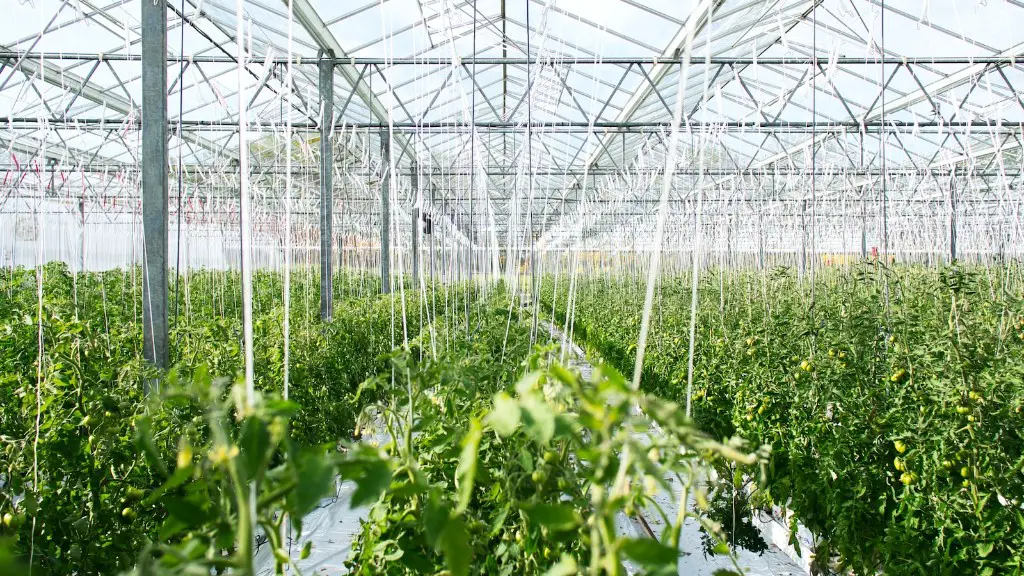Agricultural income is the income earned from running an agricultural business or from the sale of agricultural products. It usually includes profits from crop farming, dairy production, livestock sales, and any income from related activities such as farming, nurseries, and lots. Calculating agricultural income can be challenging, as agricultural production varies from year to year due to weather, market conditions and other factors. However, it is important to understand how to accurately calculate your agricultural income to ensure accurate reporting and tax compliance.
To accurately calculate your agricultural income, you will need to know the value of your agricultural production, or gross income. This includes any sales or exchanges of crops, livestock, products, services, and other sources of revenue. You will also need to factor in the cost of production, such as seed, feed, fertilizer, land expenses, fuel, labor, and other expenses associated with running an agricultural business. Once you have determined your total production value, subtract all expense transactions and your net agricultural income will be the total income received, minus expenses.
In addition, if you have agricultural investments, such as land or livestock, you will need to determine their fair market value and add this value to your total agricultural income. Depreciation of leased equipment or land may also be claimed as an expense and should be subtracted from your total income prior to determining net income. You can then calculate your net income by subtracting total expenses from total income.
Taxes on agricultural income can vary significantly, depending on the type of agricultural activity, the amount of income produced, and the type of product produced. In addition, rules for claiming deductions and credits may vary from state to state, so you should always consult a tax expert to confirm what deductions can be taken and how to properly report agricultural income on tax returns.
Agricultural income reporting requirements also vary from country to country. For instance, some countries requirements may require more detailed reporting than others. It is important to research the laws and regulations for agricultural income in the country where you live to ensure accurate and compliant reporting.
What is Included in Agricultural Income?
Agricultural income includes any income earned from an agricultural operation and includes both gross income and deductions or expenses incurred as part of the operation. Gross income can include sales of crops or livestock, consulting or servicing fees, investment income, and other sources of revenue. Cost of production expenses, such as seed, feed, fertilizer, land expenses, fuel, labor, and other operating costs can be deducted to arrive at net profit or loss.
In addition, income earned from investments in agricultural products like land, machinery and livestock are an important source of income and should be reported in gross annual income. Depreciation of leased equipment or land may also be claimed as an expense. These deductions can go a long way to reducing taxable income from agricultural operations.
Income generated from non-farming operations, such as the sale of timber, may also be included in agricultural income. Depending on the type of production and sale, the income from these activities may be taxed at a different rate than income from other farming activities. As with any type of non-farming business activity, it is important to research the laws and regulations for the country where you live to ensure accurate and compliant reporting.
Reporting Agricultural Income
In most countries, agricultural income is reported on a tax return as part of total income earned by the farm. Depending on specific regulations, some agricultural businesses may be required to file separate tax returns or to file additional forms. Again, it is important to research the applicable laws and regulations and to consult with a qualified tax specialist prior to filing a tax return to ensure accurate reporting.
In addition, payments received from the government, such as disaster relief or land conservation funds, may also need to be reported as income and should be accurately reported on tax returns. These payments are generally treated as taxable income, and should be reported on your federal return and potentially on your state return. Depending on the type of payment, you may also be eligible for credits or deductions to reduce tax liability.
Finally, if your agricultural business operates as a partnership, corporation, or limited liability company, there may be additional reporting requirements. In these cases, income earned from the business may be separately reported from personal income, and tax filing obligations may vary from the requirements for individual filing. Be sure to review the applicable regulations to accurately report agricultural income.
Conclusion
Agricultural income can vary greatly from year to year, depending on global market conditions, weather, and other factors. It is important to accurately calculate and report agricultural income in order to comply with tax obligations and maximize profitability. To do this, you will need to accurately track earnings and expenses, determine gross and net income, and research the applicable laws and regulations for your region. Understanding these processes and incorporating them into your farm’s business plan can help ensure your agricultural operation is compliant and profitable.
Taxation of Agricultural Income
Understanding how to accurately calculate and report your agricultural income is key to ensuring that you are in compliance with tax obligations. Depending on the type of agricultural activity and region where you are located, taxation requirements for agricultural income can vary significantly. In general, agricultural income is treated as earned income and may be subject to different rules than traditional wages or investment income. Therefore, it is important to research applicable regulations prior to claiming deductions or credits.
In addition, agricultural income derived from investments may be subject to different tax rates or regulations than income derived from farming activities. For example, capital gains from investments in agricultural products may be taxed differently than income from the sale of crops or livestock. Therefore, understanding tax regulations is key to maximizing profits from your agricultural business.
Furthermore, some countries may allow taxpaying agricultural businesses to deduct losses resulting from bad weather. Additionally, certain deductions may be limited for certain types of operations, such as those associated with subsistence farming. Understanding the types of deductions available and their limitations can help agriculturists reduce taxable income and maximize profits.
Finally, some countries may provide agricultural tax credits to incentivize certain practices or to reward those operating sustainable agricultural operations. These credits may apply to agricultural income or to expenses related to agricultural production, and may be available in the form of reduced taxes or cash reimbursements. Again, understanding and researching applicable regulations is necessary to ensure you are taking advantage of all opportunities to reduce taxable agricultural income.
Benefits of Accurately Calculating Agricultural Income
Being able to accurately calculate and report agricultural income is essential to ensuring your agricultural business is compliant and profitable. Having a solid understanding of what sources of income are taxable and calculating total income accurately can save money and maximize profits. Additionally, there are numerous potential credits and deductions available for agricultural businesses, which could substantially reduce taxable income. Therefore, understanding and researching available credits and deductions and knowing when and how to claim those credits or deductions can save money.
Furthermore, understanding how your income is taxed and reporting it accurately can help ensure you are in compliance with federal and state regulations. This is imperative to protect your business from being audited or assessed penalties and interest for failure to comply with regulations. Therefore, it is important to research applicable regulations and to seek advice from qualified accounting professionals who can provide guidance on agricultural income.
Finally, accurately tracking and responding to trends in agricultural prices and production costs can provide valuable insights into the profitability of your agricultural business. By accurately tracking your agricultural income, you can identify areas of profitability or loss and make adjustments to your operation accordingly. This can help to ensure that you are maximizing profits and minimizing losses.
Documentation of Agricultural Income
As with any business, it is essential to document your agricultural income to ensure accurate reporting and compliance with applicable laws. This includes maintaining records of all income received, as well as keeping track of expenses incurred as part of production. Additionally, investments in agricultural products, like land and livestock, will also need to be tracked and accounted for. Accurate record-keeping can help ensure you take advantage of available deductions and credits.
In addition, the identification of separate farming activities may be important for accurate reporting. For example, tracking expenses associated with crop production separately from those associated with animal husbandry can help inform decisions about potential credits and deductions for each activity, as well as enabling more accurate recording of income and expenses for each activity.
Finally, it is important to store all documents related to your agricultural business in a secure location, and to have an accurate backup system that is unaffected by natural disasters or power outages. The IRS or other governmental agencies may require documentation of income and expenses when auditing a business, so it is important to have the information available if needed.





